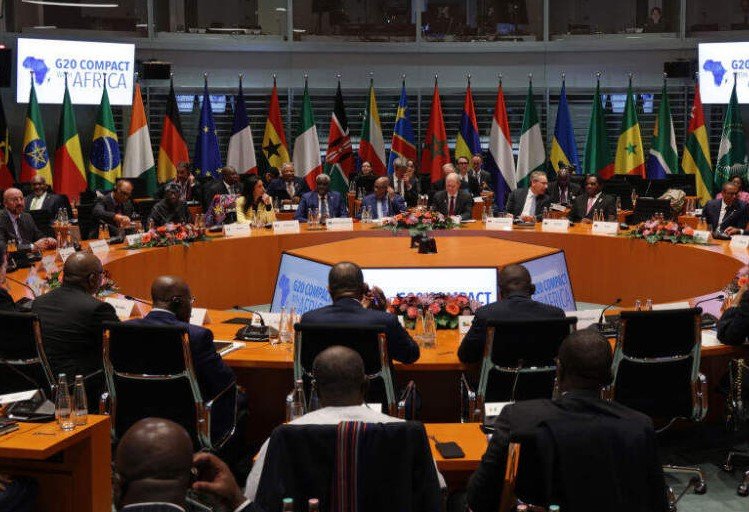Saudi Arabia and Pakistan signed a mutual defence agreement on September 17, 2025, stating that an attack on one nation counts as an attack on both. This deal, inked amid rising Middle East tensions after Israel’s strikes on Qatar, has raised questions about its effects on India and regional power shifts.
Background of the Pact
The agreement builds on decades of close ties between Saudi Arabia and Pakistan, including military training and economic aid. Signed in Riyadh by top leaders like Saudi Crown Prince Mohammed bin Salman and Pakistan Prime Minister Shehbaz Sharif, it formalizes long-standing informal security arrangements.
Experts point to recent events driving this move. Israel’s attack on Hamas leaders in Doha last week shook Gulf states’ trust in U.S. protection, despite American bases in the region. Saudi officials called the pact a step to boost deterrence without naming specific threats.
Pakistan, a nuclear power, brings military muscle to the table. In return, Saudi Arabia offers economic support, vital for Pakistan’s struggling economy. Reports suggest the deal could include access to Pakistan’s nuclear capabilities if needed, though details remain unclear.
This comes as global powers like the U.S. and China vie for influence in the region. The pact reflects Saudi efforts to diversify security partners amid doubts about American reliability under recent administrations.

Why India Should Not Worry
Many analysts argue the deal does not target India. Relations between India and Saudi Arabia have grown strong in recent years, with booming trade and defence cooperation. Prime Minister Narendra Modi’s visits have led to deals in energy, technology, and security.
One expert noted that India’s ties with Saudi Arabia stand on their own merits. Bilateral trade hit over $50 billion in 2024, and joint military exercises have increased. The pact seems more focused on Middle East threats like Iran or Israel than South Asian rivalries.
Pakistan’s defence minister claimed Saudi support in a potential war with India, but this appears as posturing. Indian officials have downplayed concerns, emphasizing that Saudi investments in India continue to rise.
Still, some voices in India express caution. The deal could indirectly strengthen Pakistan’s position in any future conflict, but it does not change the core balance of power.
Regional Geopolitics Shifts
The pact reshapes Middle East and South Asian dynamics. Gulf states feel vulnerable after Israel’s bold moves in Syria, Lebanon, and Yemen. By allying with nuclear-armed Pakistan, Saudi Arabia gains a deterrent against such aggressions.
This move fuels U.S.-China rivalry. Some see American influence behind the deal, as it counters Iran’s growing clout. Pakistan’s role could pull it deeper into Gulf conflicts, away from its focus on India.
For India, it complicates projects like the India-Middle East-Europe Economic Corridor. Delays in that initiative might worsen if regional alliances harden.
Key regional impacts include:
- Stronger Saudi-Pakistan military drills and arms sharing.
- Potential for an “Islamic NATO” style grouping, as some media suggest.
- Heightened tensions with Iran, which views the pact as a threat.
Analysts predict this could trigger new alignments, with countries like the UAE possibly following suit.
| Aspect | Saudi Arabia’s Gain | Pakistan’s Gain |
|---|---|---|
| Military | Access to nuclear deterrence and trained forces | Advanced weapons and joint training |
| Economic | Reduced dependency on U.S. security | Billions in investments and aid |
| Geopolitical | Boosted regional influence against Iran and Israel | Stronger backing in South Asia disputes |
Expert Views on the Deal
Scholars like those from Jawaharlal Nehru University highlight the pact’s roots in evolving global ties. It shows Saudi Arabia seeking reliable partners beyond the West, while Pakistan renews its economic lifeline.
One view ties it to U.S. rediscovery of Pakistan’s military value. This echoes past alliances during the Cold War era.
Critics warn of risks. If drawn into Gulf wars, Pakistan might overextend its resources. For Saudi Arabia, relying on Pakistan could complicate relations with India, a key economic partner.
Recent social media buzz reflects mixed sentiments. Posts on platforms like X show Indian users debating if this weakens New Delhi’s Gulf gains, while Pakistani accounts celebrate it as a win against India.
Future Outlook and Broader Implications
Looking ahead, the pact might evolve into broader cooperation, including cyber defence and intelligence sharing. With elections looming in key nations, its full effects could unfold in 2026.
For India, maintaining strong Saudi ties remains crucial. Diplomatic efforts should focus on shared interests like counter-terrorism and energy security.
This deal highlights how global events, from Middle East conflicts to U.S. policy shifts, ripple into South Asia. As tensions simmer, watch for how India navigates these changes.
What do you think about the Saudi-Pak defence pact and its impact on India? Share your thoughts in the comments and spread the word to keep the conversation going.
